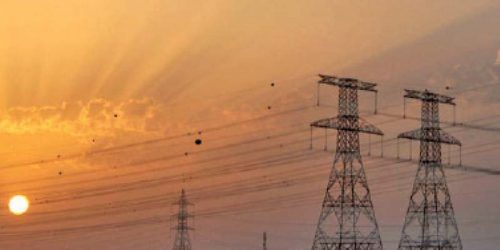The government is planning to increase the number of hydroelectric power projects in order to take the share of renewable energy to higher levels, said National Electric Power Regulatory Authority (Nepra) Chairman Tauseef H Farooqui.
Sharing his views at a webinar titled “Impact of Covid on Energy Sector of Pakistan: Opportunities and Challenges”, organised by the Sustainable Development Policy Institute (SDPI), Farooqui stressed that the target was to increase the share of renewable energy in the country to 60% over the next 10 years.
Highlighting the impact of Covid-19 on the sector, he informed the webinar participants that the pandemic had affected investment in the energy sector globally by 20-30% and in the renewable energy sector by 15%.
Farooqui added that there had been several challenges on the demand side as commercial activities ceased for a while, leaving a bad impact on the country’s economy. Therefore, the government provided a 25% discount to the industrial sector while small and medium enterprises (SMEs) were provided with a 50% relief.
US Embassy Economic Officer Anne Sackville-West told the webinar participants that the United States and Pakistan had been working on renewable energy for the past many years.
Besides, USAID has recently invested in several clean energy projects in the country.
In the context of Pakistan, she said that structural changes were expected in the power tariff and thus energy would become expensive in the coming days. She added that the electricity price would ensure that Pakistan moved out of the current situation pertaining to the circular debt.
However, on the other hand, a lot of people still do not have access to electricity. It signifies the need for having a holistic approach and broader stakeholder engagements to resolve several technical and policy-level issues including the affordability and sustainability of energy.
“Financial incentives are the key to the market in order to come up with appropriate solutions. Therefore, a long-term integrated conversation approach is required,” she added.
Energy sector expert Khurram Lalani was of the view that the key learning point from Covid-19 was that scientific economic diversity should be accepted in the policymaking process.
In the energy sector, he said, the grid modernisation framework was lacking in Pakistan. “The subsidy re-targeting regime needs to be addressed as a majority is not able to pay bills in times of pandemic,” Lalani added.
The expert highlighted that investors had lost hope in relation to the tariff. Thus, “a competitive market regime is required”.
Besides, good financing as well as a technical base were required for a clean, stable regime. The pandemic provided an opportunity to come up with a comprehensive framework for fuel pricing and cost mitigation, he said.
Speaking on the occasion, Engro Energy Limited General Manager Dr Fatima Khushnud highlighted that slow economic activity was observed after the Covid-19 outbreak.
“It is a positive sign that supplier regulation is out for consultation process and we are moving effectively on the policy side,” she said, adding “Therefore, a lot of market reforms are expected because of the impact of the pandemic.”
She was of the view that many industries were now aware of renewable energy, especially the textile industry and steel industry, and were moving towards green energy.
Khushnud added, “We need to move towards electrification of the transport sector and better financing opportunities exist if we incline towards green energy.”
SDPI Research Fellow Dr Sajjad Amin earlier highlighted the importance of fiscal stimulus and said that the country needed to explore possible actions as fiscal stimulus was not aligned with the green recovery. He added that the demand for green energy needed to be explored.





